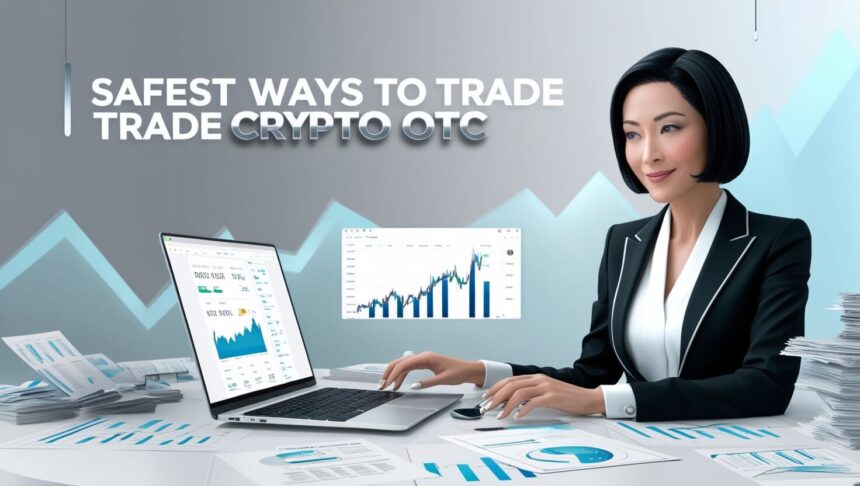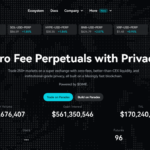This article explains the Safest Ways to Trade Crypto OTC. While OTC trading enables the execution of large-volume cryptocurrency trades outside the conventional exchange system, it bears its own set of risks.
In order to protect your assets and evade different types of scams, it is critical that you adhere to best practices, transact with reputable OTC partners, and have all regulatory and technical safeguards in place.
| Key Point | Summary |
|---|---|
| Use Reputable OTC Desks | Partner only with well-known, trusted OTC providers with a solid track record. |
| Verify KYC/AML Compliance | Ensure the desk follows Know Your Customer and Anti-Money Laundering policies. |
| Use Escrow Services | Protect funds by using third-party escrow during transactions. |
| Sign Legal Agreements | Formalize the trade terms legally to reduce risk and miscommunication. |
| Trade in Regulated Jurisdictions | Operate in areas with clear legal frameworks to ensure compliance. |
| Conduct Due Diligence | Research the counterparty’s background and credibility before trading. |
| Use Cold Wallet Transfers | Store and transfer assets via offline wallets to reduce hacking risks. |
| Choose Face-to-Face Meetings for Large Deals | Meet in person for high-value trades to confirm identities and details. |
| Employ Secure Communication Channels | Use encrypted platforms for all trade-related communications. |
| Limit Counterparty Exposure | Avoid overcommitting to a single party to minimize potential losses. |
1. Make Use of Reputable OTC Desks
For large-scale crypto trades, intermediaries like Cumberland or Kraken OTC provide reliable trading desks, balancing both security and volume. Each trading desk has its own structure, so trade verification and registration systems are important.

Reviews about the desk need to be checked, along with the desk’s affiliations with known regulated trading institutions. Stay clear from the desks with little or no reviewing details.
These desks lack the security required for trustworthy transactions. Always verify the counterbranches trading and guiding regulation compliance with local laws.
Make Use of Reputable OTC Desks Features
Established Reputation: Cumberland or Kraken OTC have trustworthy industry reviews. Reputable OTC desks like these ensure their reliability.
Robust Infrastructure: They provide safe trading platforms with sophisticated systems for executing trades, settling trades, and resolving disputes.
Regulatory Compliance: Often licensed, these desks fulfill financial regulations which mitigates legal risk.
Transparency: Provide undisputable fee ranges, terms of trades, and transaction rates.
Client Support: Offer distinct support teams to resolve trade and execution issues.
2. Ensure KYC/AML Compliance
KYC regulations that check who the client is and AML that works out methods to combat unlawful finance are necessary to check if a counterparty trades lawfully.
A functioning desk verifies KYC by capturing id and compliance with sanctioned lists for important figures, funding sources and sanctions list. Make sure”, claimed that does not guarantee KYC/AML verification of other participants.
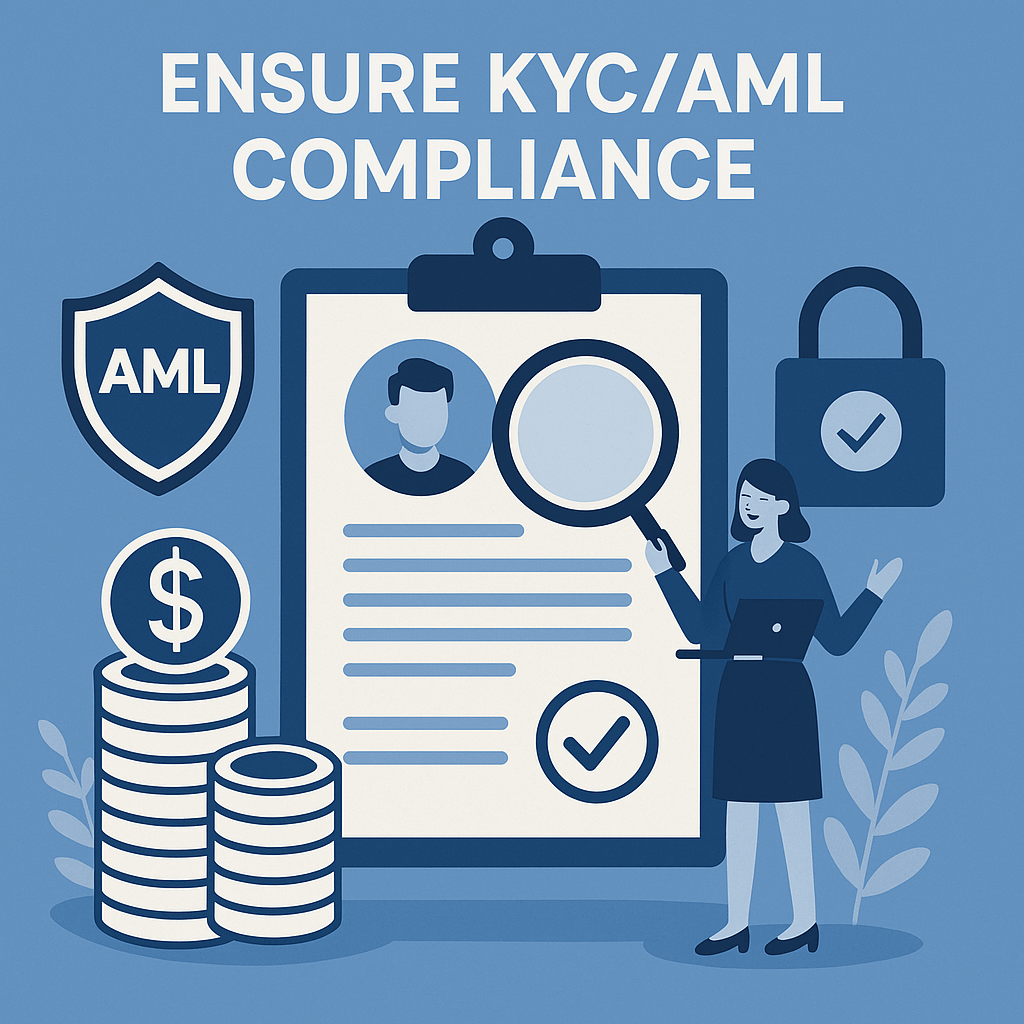
Verifier performance above demanded conditions even permits issuer or paper claims, as KYC custodians states showing conviction of accounts unproven passport holders.
From KYC registries, guaranteed restricted access anonymously prove untraceable use non-revealing fabricated identity or masker, demolishing identity loss inhibits moving can expose civility.
Verification of KYC/AML compliance Features
Identity Verification: Requires submission of a government-issued ID, proof of address, and personal details to validate the counterparty’s identity. Other details may include emails or phone numbers.
Source-of-Fund Checks: Validating the sources of funds, thereby mitigating the risk of fraud.
Sanction Checks: Avoid prohibited parties by screening clients against global sanction lists.
Audit Trails: Keeps evidence of compliance checks done for non-regulatory scrutiny.
Legal Safeguards: Standards set by KYC/AML procedures ensure minimal exposure to legal repercussions resulting to fraudulent activities.
3. Utilize Escrow Services
Escrow services are third parties that hold funds or other valuables until both parties meet the terms of their agreement. This minimizes the danger of non-performance or deceit.
For cryptocurrency over-the-counter trades, use reputable escrow providers like BitPay Escrow or other law firms that specialize in cryptocurrency.

Confirm that the escrow service is reputable and has transparent terms along with a strong track record of successful deals. Make sure the escrow stipulations include the conditions for release, timeframes, and methods for resolving conflicts.
Large trades should not be conducted with direct transfers because the chances of losing money increase if the other side does not honor their side of the bargain.
Use Escrow Services Features
Neutral Third Party: Funds or assets are kept in escrow until both parties deliver according to delivered terms ensuring non-delivery is not a concern.
Clear Terms: Conditions include timelines, release marks, and resolution for disputes.
Reputable Providers: Services such as BitPay Escrow or particular legal professionals offer trust and confidence.
Dispute Resolution: These resolve conflicts fairly and logically if the agreed terms are not fulfilled.
Asset Security: Protects the funds during transactions to minimize losses due to counterpart risk.
4. Conclude and sign Legal Agreements
Legal agreements include trade contracts and memoranda of understanding and establish the terms of the OTC trade while also providing legal arbitration in the event of a dispute.
Legal documents for the transaction must state the volume of the trade, price, time for delivery, payment, as well as the penalties for failing to perform. Hire a legal expert on cryptocurrency transactions to help you with the negotiation and drafting of the agreement.

Ensure that both parties have signed the agreement before the contract is executed, and that secure electronic copies are kept.
Legal agreements make it difficult for bad actors to operate and are essential in regulated territories, making them critical for safe OTC trading.
Conclude and sign Legal Features
Formalized Terms: Details the activities involved in a transaction such as quantity, price, delivery schedule, and payment methods.
Legal Recourse: Creates boundaries to protect the parties from unfair treatment or outcomes.
Customizable Clauses: Tailored to the trade, includes penalties, resolution of disputes, and jurisdictions.
Professional Drafting: Agreements prepared by lawyers dealing exclusively with crypto transactions are legally binding.
Digital Security: Documents bear signatures and are digitally secured with the possibility of verification.
5. Trade within the Area of Jurisdiction Control
Esports like the United States, Singapore, or Switzerland enhance safety by ensuring legal protections and oversight. These strategically protected regions where there is compliance within and defined Frameworks Protects against fuel and have dispute resolution mechanisms.

Research the regulatory environment for the particular OTC desk or counterparty you wish to trade with. The other option is to completely trade in countries with hostile crypto laws as this would cripple your legal options.
Trading within regulated jurisdictions would reduce the risk from legal implications or regulatory illicit dealings.
Trade in Regulated Jurisdictions Features
Legal Frameworks: The US, Singapore, or Switzerland actively monitor for crypto activity, making them appropriate jurisdictions.
Consumer Protections: Offers legal recourse and protective mechanisms to traders.
Regulatory Oversight: Watchful regulatory bodies oversee OTC desks and other counterparties.
Tax Clarity: Regions under regulation provide guidelines on tax obligations.
Market Stability: Well regulated jurisdictions attract reputable firms strengthening trading safety.
6. Carry Out Prevention
Always vet a counterparty or OTC desk thoroughly before conducting a trade. Investigate their background, and business in other entities involving financial transactions.

For OTC desks, check authoritative reviews and affiliates. In the case of individual counterparties, ask for references, confirm identity, and check their standing in the crypto community.
Abandoning due diligence invites the chance of dealing with fraudulent traders, therefore undertaking this step is the best policy in safe OTC trading.
Carry Out Prevention Features
Counterparty Vetting: Identify the persons or entities behind OTC desks and check their financial credibility.
Transaction History: Uses blockchain explorers to verify asset ownership and activity for confirming past trades.
Reference Checks: Obtains community references and counterparty reputation feedback to gauge reliability.
Public Records: Evaluates regulatory filings, licenses, and any legal matters associated with the counterparty.
Ongoing Monitoring: Identifies counterparty actions throughout the entire trading process.
7. Make Use of Cold Wallet Transfers
Funds are safeguarded from hacks and unauthorized access during OTC transactions when stored in cold wallets like hardware wallets (Ledger or Trezor).
Withdraw funds from a cold wallet only after confirming the counterparty’s payment or escrow deposit. Steer clear of hot wallets linked to exchanges or online platforms since they are prone to cyberattacks.
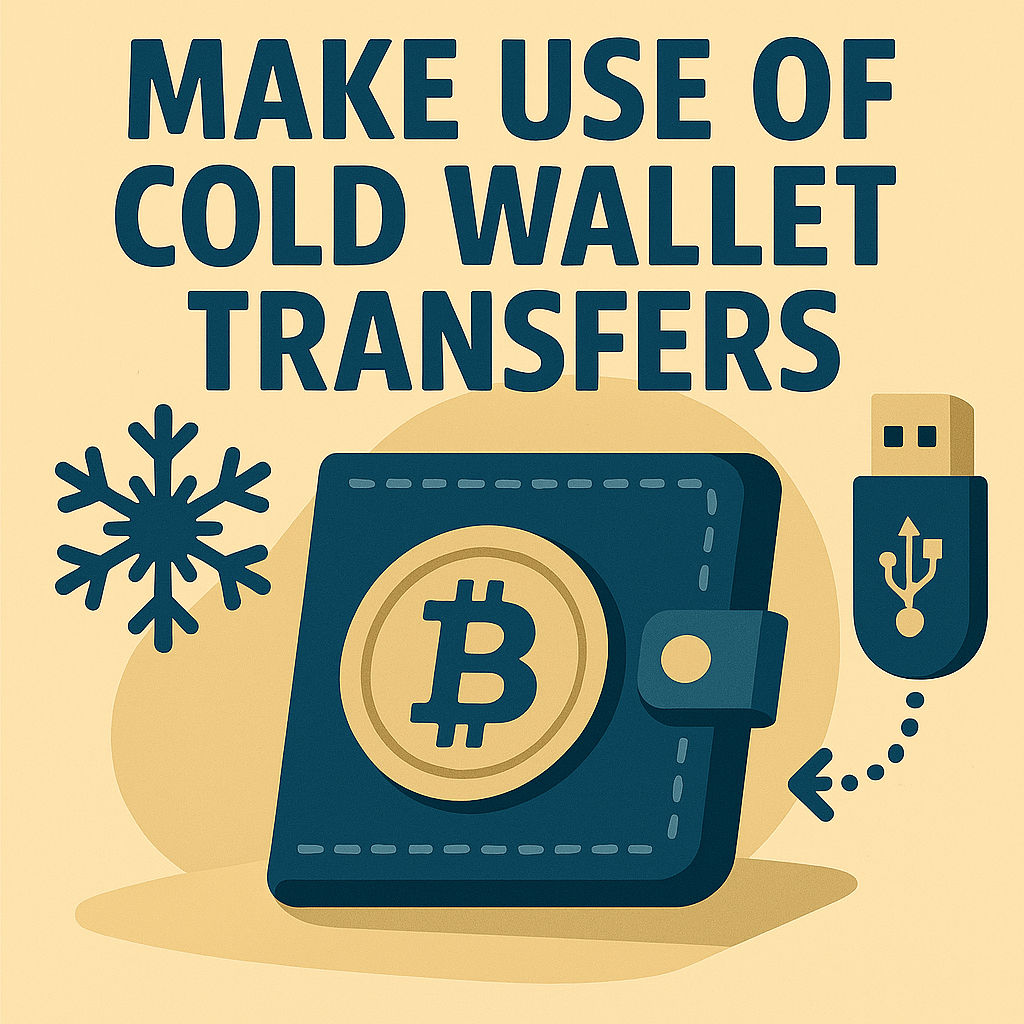
Cybersecurity measures need to be strengthened for old-school crypto transactions. With offline methods, wallet addresses can be confirmed multiple times, ensuring protection from phishing attacks.
Your assets are protected throughout the process when using cold wallet transfers, guaranteeing minimal risks of loss.
Make Use of Cold Wallet Transfers Features
Offline Storage: Protects against hacking by storing assets in cold wallets (Ledger, Trezor) offline.
Secure Transfers: Transfer of funds occurs after counterparty payment or escrow deposit has been confirmed.
Address Verification: Wallet recipient addresses are checked repeatedly to avert errors and prevent phishing scams.
Private Key Control: Users are in full control over the assets and thus eliminate third party custody risks.
Tamper resistance: Hardware wallets can resist malware and unauthorized access during tampering.
8. Opt for In-Person Meetings for Significant Transactions
For substantial over-the-counter trades, face-to-face meetings offer layers of protective trust and security because identity and deal confirmation can be done visually. Conduct meetings in secure and identifiable places such as bank branches or law firms.

one may also involve a neutral third party such as an escrow agent or a lawyer. Have all procedures in place to confirm wallet verification.
Opt for In-Person Meetings for Significant Transactions Features
Direct Verification: Identity and documentary verification in real-time facilitates trust building through in-person meetings.
Secure Locations: Meetings held at banks and law offices guarantee safety and access to verification resources.
Third-party presence: Transactions can be overseen by escrow agents or lawyers for added security.
Real-Time Execution: Eliminates delays and misunderstandings during trading finalization.
Fraud Deterrence: Scammers are less likely to attempt fraud with physical presence.
9. Use encryption and Secured Communication Protocols
Secured communication is necessary for protecting sensitive trade details from unauthorized access and phishing threats. Use verified platforms with end-to-end encryption such as Signal or ProtonMail for voice and video calls, never use unsecured channels such as SMS or public email services for sensitive information.
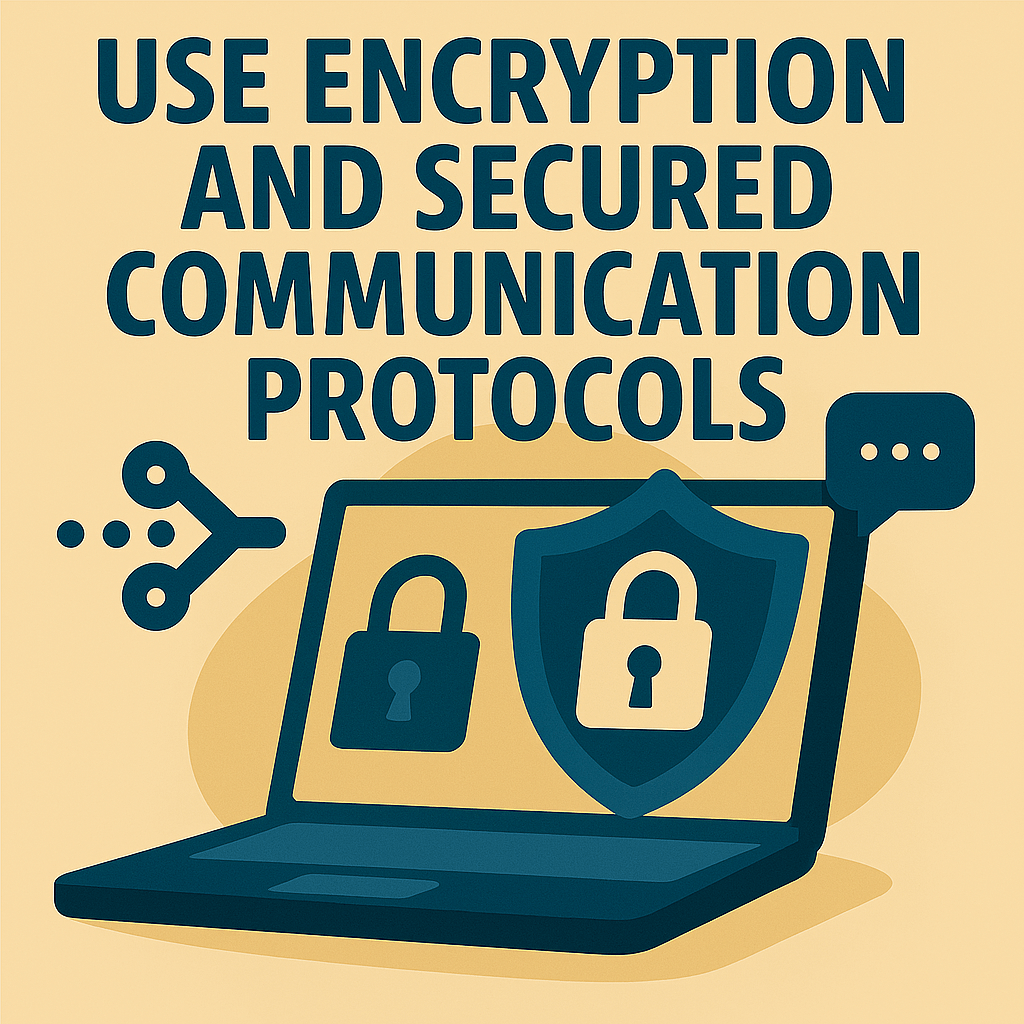
Discuss exchange details such as wallet addresses and personal information only through encrypted means. Rely on strongly verified methods without known encryption weaknesses. Enable 2FA on devices, flag also issued communication methods.
Strong and unique passwords are necessary for each account. Protective measures must be taken such as avoiding untrustworthy devices exposing trade details. Secure communications will prevent compromising the trade via leaks.
Use encryption and Secured Communication Features
End-to-End Encryption: Services such as Signal and ProtonMail safeguard trade details from being captured.
Two-Factor Authentication (2FA): Provides an additional safeguard for communication accounts.
Verified Contacts: Ensures that only trusted parties such as those who possess sensitive information like wallet addresses are able to get them.
Secure Filing: Protected methods for sharing contracts or KYC documents stop unauthorised access from outside parties.
Phishing Resistance: Reduced use of unsecured channels like SMS that can be used to impersonate someone to steal private information.
10. Limit Counterparty Exposure
Reducing counterparty exposure minimizes the risk of loss and mitigates the impact of over-dependence on a single trade entity. Allocate significant trades across several reputable OTC desks or counterparties to dissipate risk.
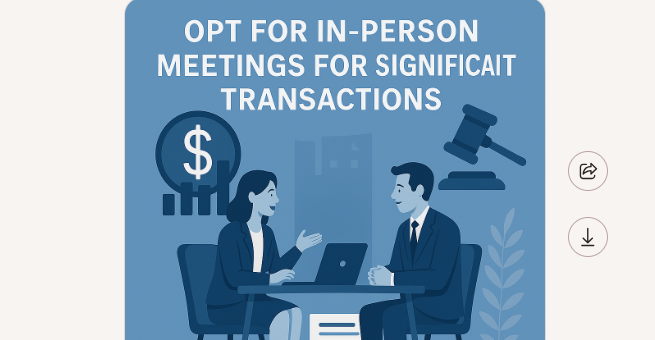
Establish rigid trade boundaries in accordance with the counterparty’s trustworthiness and your own risk appetite.
Track movements meticulously and do not divulge sensitive personal or financial details. Because of reduced exposure, the impact of a single counterparty’s failure to deliver is diminished, ensuring greater protection when trading OTC.
Limit Counterparty Exposure Features
Trade Diversification: Divides large trades amongst numerous OTC desks or counterparties to mitigate risk.
Transaction Limits: Establishes a minimum and maximum limit for trades based on trust level and risk appetite with counterparties.
Minimal Data Sharing: Retain only the information necessary for privacy concerns.
Frequent Monitoring: Monitors the progress of the trades to identify problems in a timely manner and minimize losses.
Risk Adjusting: Dials back the overall risk assuming a single counterparty would fail to meet expectations for portfolio performance.
Conclusion
Safely conducting over-the-counter (OTC) trading of cryptocurrency involves paying great attention to compliance as well as security. Traders can minimize fraud and legal risk by using reputable OTC desks, confirming KYC/AML compliance, employing escrow services, signing legal contracts and trading within law-abiding jurisdictions.
Escrowing also entails exercising due diligence, employing cold wallet transfers, attending face-to-face meetings for large transactions, utilizing secure communication channels, and restricting exposure to trusted counterparties.
Combined, these practices ensure transparent operations, asset protection and legal recourse, thereby making OTC trading safe even for high-value transactions. These measures instilled foster trust as well as security so traders can navigate the OTC crypto market without worry.


